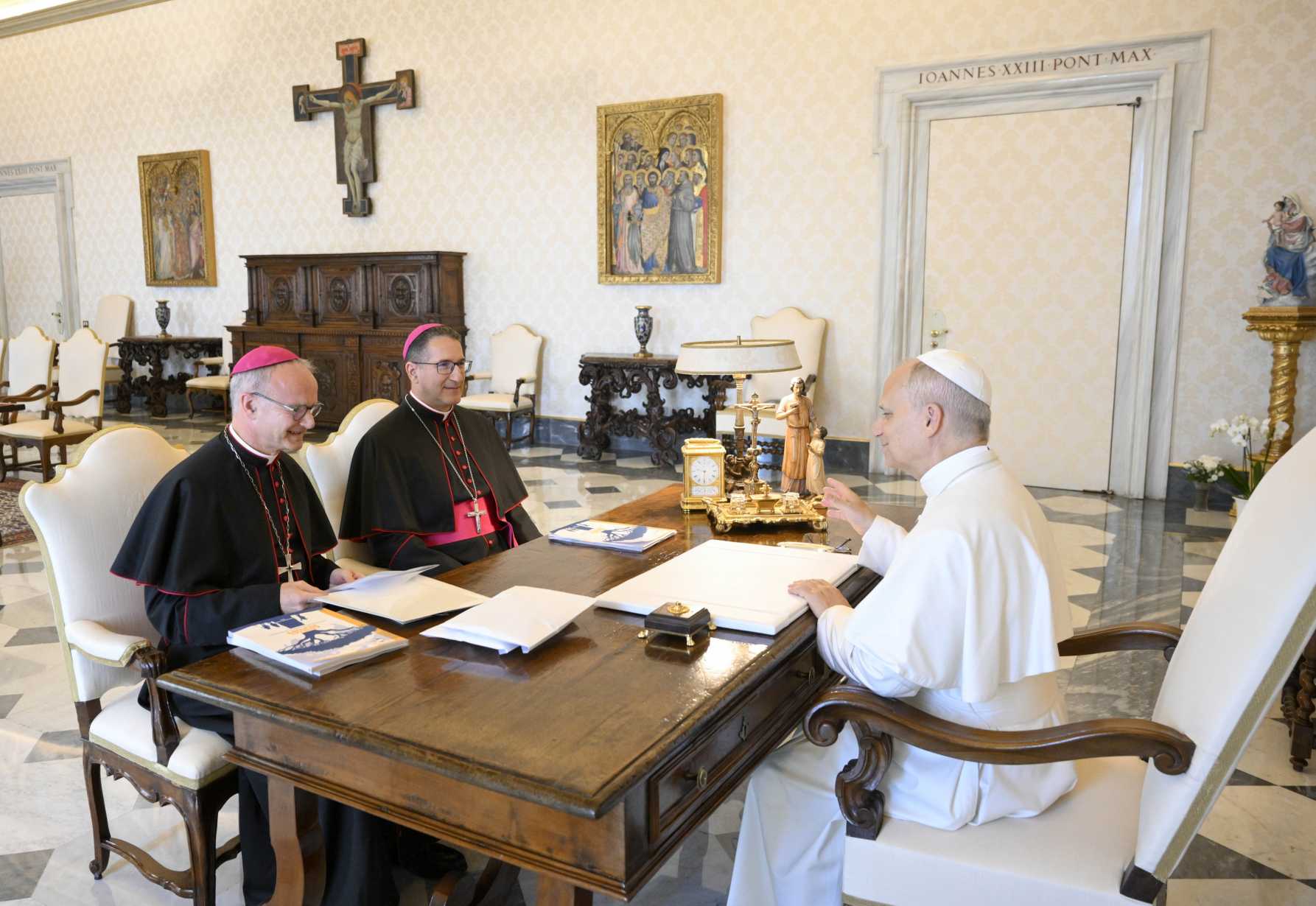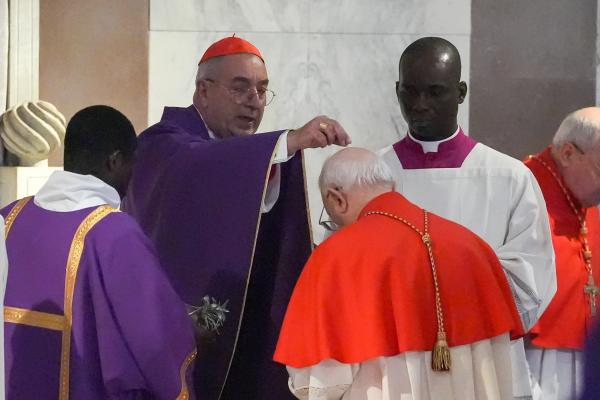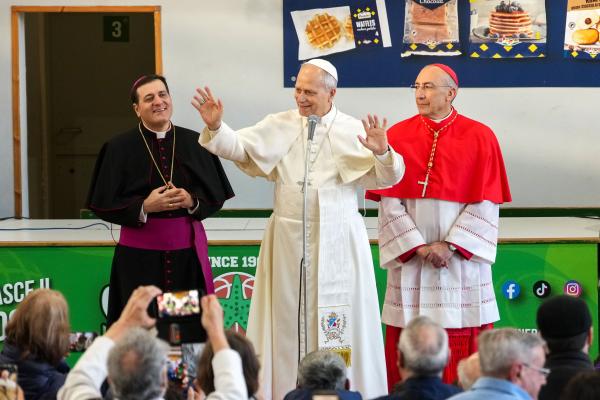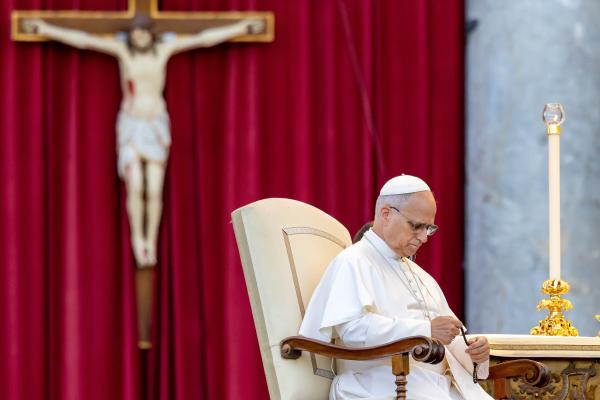Pope tells new bishops they must address abuse claims promptly
Pope Leo XIV spent more than three hours with close to 200 bishops who had been named to dioceses around the world in the past year. Thirteen of the new bishops came from the United States for the Vatican's annual courses for new bishops.
 Cindy Wooden
Cindy Wooden

Pope Leo XIV meets with French Archbishop Thibault Verny of Chambéry, France, president of the Pontifical Commission for the Protection of Minors, left, and Colombian Bishop Luis Manuel Alí Herrera, commission secretary, right, in the library of the Apostolic Palace at the Vatican Sept. 12, 2025. (CNS photo/Vatican Media)
VATICAN CITY (CNS) -- Pope Leo XIV told 192 new bishops from around the world that they must respond promptly to allegations of inappropriate or abusive behavior by priests.
"These cannot be put in a drawer -- they must be addressed with a sense of mercy and true justice toward both the victims and the accused," the pope told the bishops Sept. 11, according to the Vatican press office.
The pope had spent the entire morning with the prelates, including 13 from the United States, who were in Rome for the Vatican's annual formation courses for new bishops. The courses included sessions on handling abuse allegations.
Pope Leo read a prepared speech to the group, which was broadcast in the Vatican press office and published on the Vatican website. But, the press office said, he continued sharing his concerns and advice with the bishops before opening the floor to their questions.
The press office published a summary of the closed-door session Sept. 12.
Also Sept. 12 Pope Leo had his first official meeting with French Archbishop Thibault Verny of Chambéry, France, whom the pope had named president of the Pontifical Commission for the Protection of Minors in July.
In his meeting with the new bishops the day before, the pope asked them to be "be persevering disciples, not afraid when faced with the first difficulty, pastors close to the people and to their priests, merciful yet firm -- even when it comes to making judgments --capable of listening and dialogue, not merely preaching," the Vatican summary said.
"Be builders of bridges," he told the bishops, including by embracing synodality, "which he described not as a pastoral method, but as 'a style of church, of listening and of shared search for the mission to which we are called.'"
As he had done in his formal text, Pope Leo also told the bishops they must be creative in sharing the Gospel and ministering with their people, which can happen only if they are engaged and involved in the world and understand the questions people are asking today.
"Ready-made answers learned 25 years ago in seminary are not enough," the pope told them.
The bishops must value the "pastoral and human experiences" that they have had in their local churches and allow them to "grow into a new ministry that brings bishops into contact with the universality of the church," the summary said.
Pope Leo spoke to the bishops about the "fears, a sense of unworthiness, the various expectations each had for their lives" before being named a bishop, the summary said, and he "emphasized the necessity of staying close to the Lord, preserving time for prayer, and continuing to live with unconditional trust in the Holy Spirit, the source of their calling."
Responding to a question about the challenge of beginning a new ministry, "the pope spoke personally about what it means for him," the press office said.
"He urged trust in God's grace and the grace of office, to recognize one's gifts and limitations, including the need for help from others -- perhaps relying on the valuable experience of a good emeritus bishop who can offer support or guidance," it said. "He warned against the temptation to form one's own group and isolate oneself."
The bishops spoke about how some 1 million people attended the early August celebration of the Jubilee of Young People and their thirst for an authentic spiritual life, the summary said.
Pope Leo noted that young people have not found a response to that thirst in the virtual world nor "in the typical experiences of our parishes."
Responding to a question, the pope urged bishops to be prudent in the use of social media, where "everyone feels entitled to say whatever they want, even false things."
"There are times when reaching the truth is painful," but necessary, he said, adding that bishops should "rely on communication professionals, trained individuals."
He summarized his recommended approach to media by saying, "Calm, a good head, and the help of a professional."
The Vatican said the pope and bishops also spoke about the importance of peacemaking, interreligious dialogue and safeguarding the environment.



